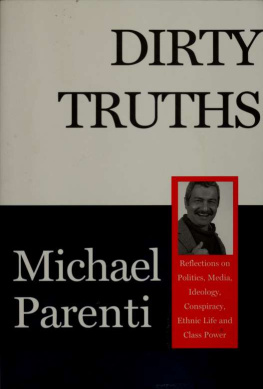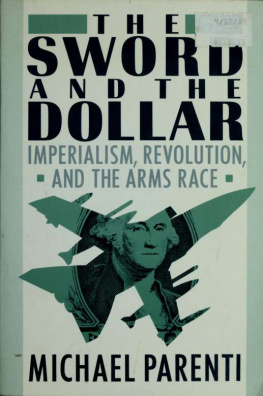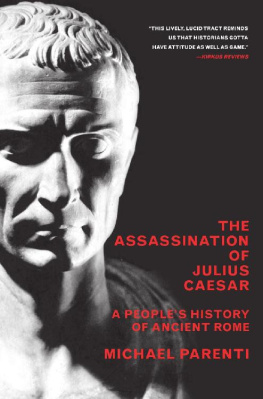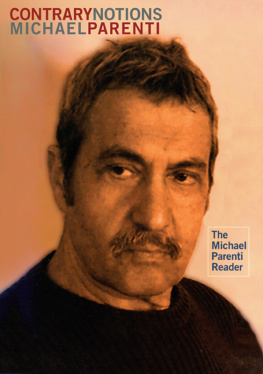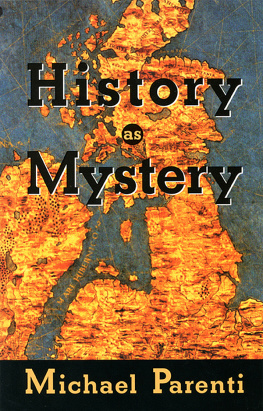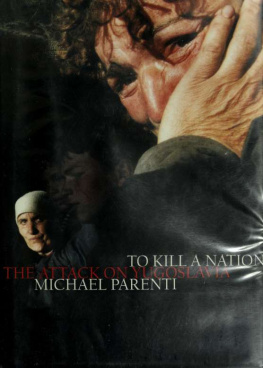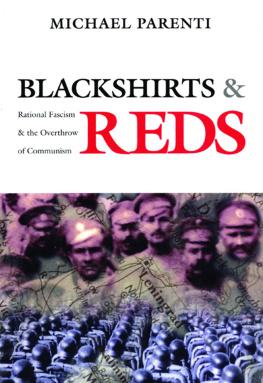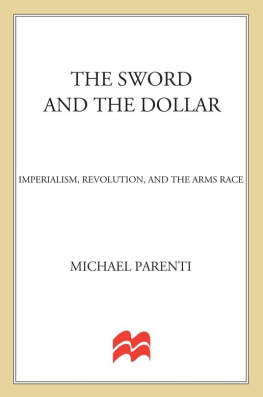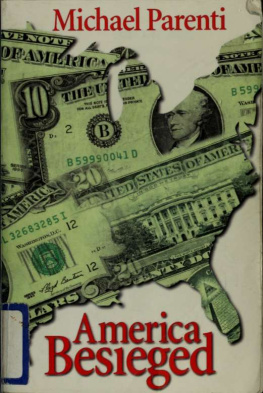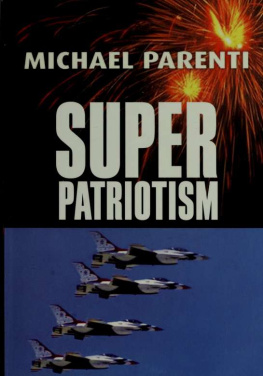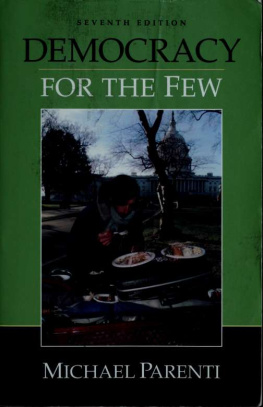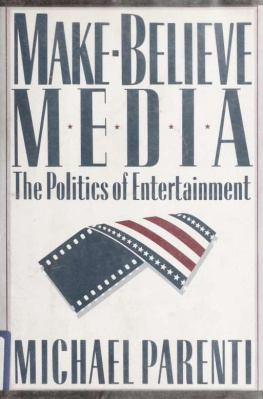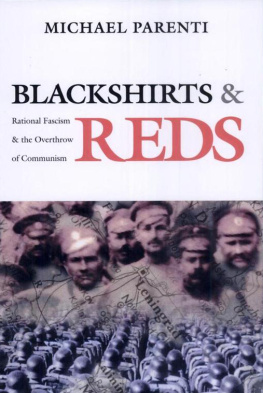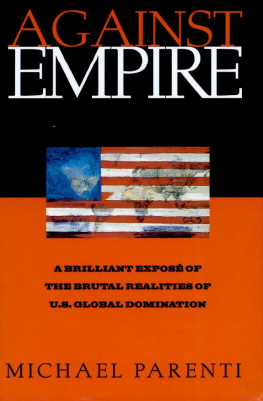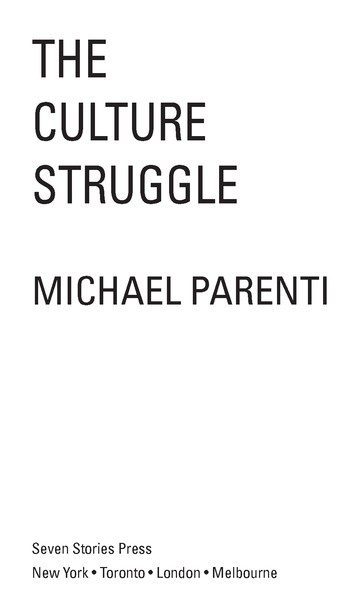To Jenny Tayloe for all the right reasons
ACKNOWLEDGMENTS
Violetta Ettare, Richard Wiebe, and Tobey Wiebe read the entire manuscript and offered valuable comments, as did Jenny Tayloe, to whom this book is dedicated. My Seven Stories editor Greg Ruggiero was especially helpful in rendering an expert reading of the manuscript, while remaining ever respectful of the authors style and final decisions. Amanda Bellerby took time from her busy days to render research assistance. Nick Weber tracked down an important source for me. Emilie Parry provided me with useful information from her travels. Peter Livingston and Willa Madden assisted with computer illiteracy problems, of which I have more than my share. To all these fine people I give my thanks.
INTRODUCTION
Many of us go through our years trying to make sense of the world we live in. In our more discouraged moments, this effort may seem futile. But whether done skillfully or clumsily, trying to make sense of things is what makes us truly human. And no matter how imperfect the effort might be, it has its rewards by sometimes bringing us to a closer approximation of the truth, to something better than the song-and-dance act that is often foisted upon us by those who populate the dominant arena of discourse.
One of the persistent ideological teachings in the United States is that our society is notably free of ideological teachings. Ideology is something imported from alien lands or brewed at home by allegedly sinister groups, as in "Communist ideology." Yet we Americans are indoctrinated in certain precepts about patriotism, the self-made rich, and the rewarding viability of the free market. We also entertain notions about class, race, and gender relations, and about the democratic distribution of power in our pluralistic society. It is my view that most of such beliefs are themselves ideological. Yet they are widely circulated and remain largely free of critical examination, being seen as representing the natural order of things. These ideologies do not just emerge spontaneously and full blown but are disseminated through the dominant institutions of society. They serve as instruments of social control. In contrast, iconoclastic views are accorded only limited exposure and are regularly portrayed as beyond the pale.
To better understand the dynamics of authoritative governance in society, it is not enough to study the prevailing political realm. We also must grasp developments throughout the civil society. In brief, we need to understand the problem of culture as well as that of power. To understand fully what culture is, we need to treat it as a component of social power. As used in this book, the word "culture" designates something in addition to art, music, and other refinements of haute culture. Culture refers to the entire panorama of conventional beliefs and practices within any society. In the pages ahead I explore aspects of culture manifested in social conflict, gender, race, science, sexual identity, New Age notions, personal perceptions, and various other subjects ranging from the everyday to the esoteric.
Rather than constructing a rigorous and complex theory of culture, as in a social-science monograph, I present a set of discursive commentaries linked by underlying themes, filled with illustrative examples. This book is designed to get readers to think about things that either have been unduly obscured or are so obvious as to be easily overlooked.
REFLECTIONS ON CULTURE
1: THE POLITICS OF CULTURE
In the academic social sciences, students are taught to think of culture as representing the customs, values, and accumulated practices of a society, including its language, art, laws, and religion. Such a definition has a nice neutral sound to it, but culture is anything but neutral. It is more than just our common heritage, the social glue of society. The eighteenth-century political thinker, Edmund Burke, referred to the imponderable consensual bond that holds society together. But culture is also an arena of conflict as well as consensus. While some of its attributes are shared by practically all of a societys members, certain others are not. Many customary standards operate to benefit particular people and disadvantage others. In other words, culture is often a cloak for privilege and inequity.
In the nineteenth century the Germans coined the word Kulturkampf , which eventually passed into the English language, literally meaning "culture struggle." It referred to the conflicts between church and state over the control of education. Today in the United States we talk of "culture wars" to describe how whole segments of American culture have become politically contested areas.
Culture is not an abstract force that just floats around in space and settles upon usalthough given the seemingly subliminal ways it influences us, it often can feel like a disembodied ubiquitous entity. In fact, we get our culture through a social structure, from a network of social relations involving other people in primary groups such as family, peers, and other community associations or, as is increasingly the case, from formally chartered institutions such as schools, media, government agencies, courts, corporations, churches, and the military. Linked by purchase and persuasion to dominant ruling interests, such social institutions are regularly misrepresented as being politically neutral, especially by those who occupy command positions within them or who are otherwise advantaged by them.
Much of what we call "our common culture" is really the selective transmission of elite-dominated values. A society built upon slave labor, for instance, swiftly develops a self-justifying slaveholder culture with its own racist laws, science, mythology, and religious preachments. Likewise, a society based on private corporate enterprise develops supportive values and beliefs that present the business system as the optimal and natural mode of social organization. Antonio Gramsci understood all this when he spoke of cultural hegemony, noting that the state is only the "outer trench behind which there [stands] a powerful system of fortresses and earthworks, a network of cultural values and institutions not normally thought of as political, yet political in their impact.
Some parts of culture may be neutral composites of accumulated practices, the "glue of social relations," but other parts often clash with societys ascendant interests. When thinking about "our common culture," we tend to gloss over both the class divisions and the cultural differences that exist. If culture defines a people, a society, or a nation, which group of people and which subculture within that nation are we talking about? In the United States, through much of the nineteenth century, slaveholders and abolitionists held cultural values that were markedly at odds with each other, as did male supremacists and female suffragists.
There are two misunderstandings I should like to put to rest. First is the notion that culture is to be treated as mutually exclusive of, and even competitive with, political economy. An acquaintance of mine who used to edit a socialist journal once commented to me: "You emphasize economics. I deal more with culture." I thought this an odd dichotomization since my work on the news media, the entertainment industry, social institutions, and political mythology has been deeply involved with both culture and economics. In fact one cannot talk intelligently about culture if one does not at some point also introduce the dynamics of political economy and social power. This is why, when I refer to the "politics of culture," I mean something more than just the latest controversy regarding federal funding of the arts.


